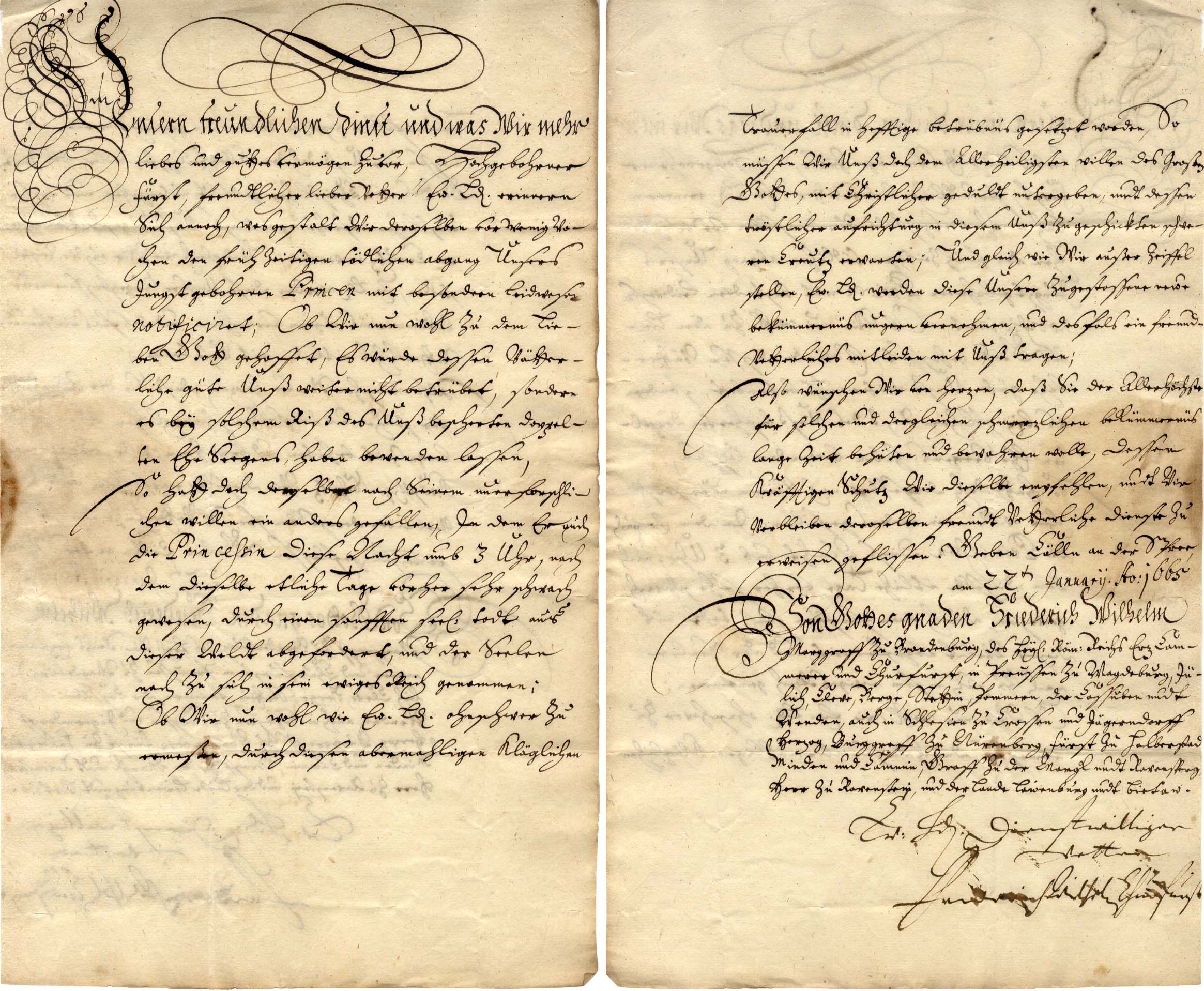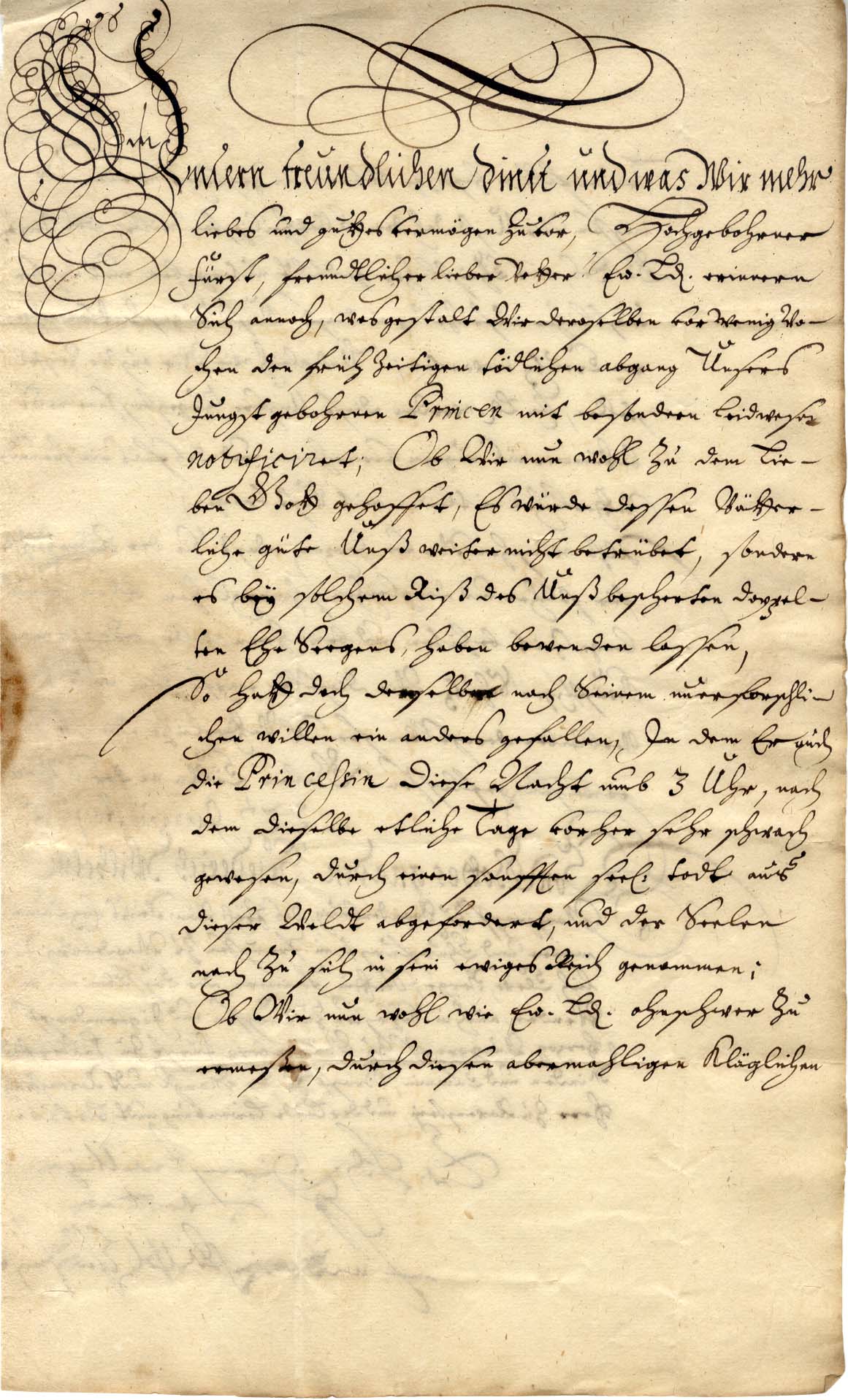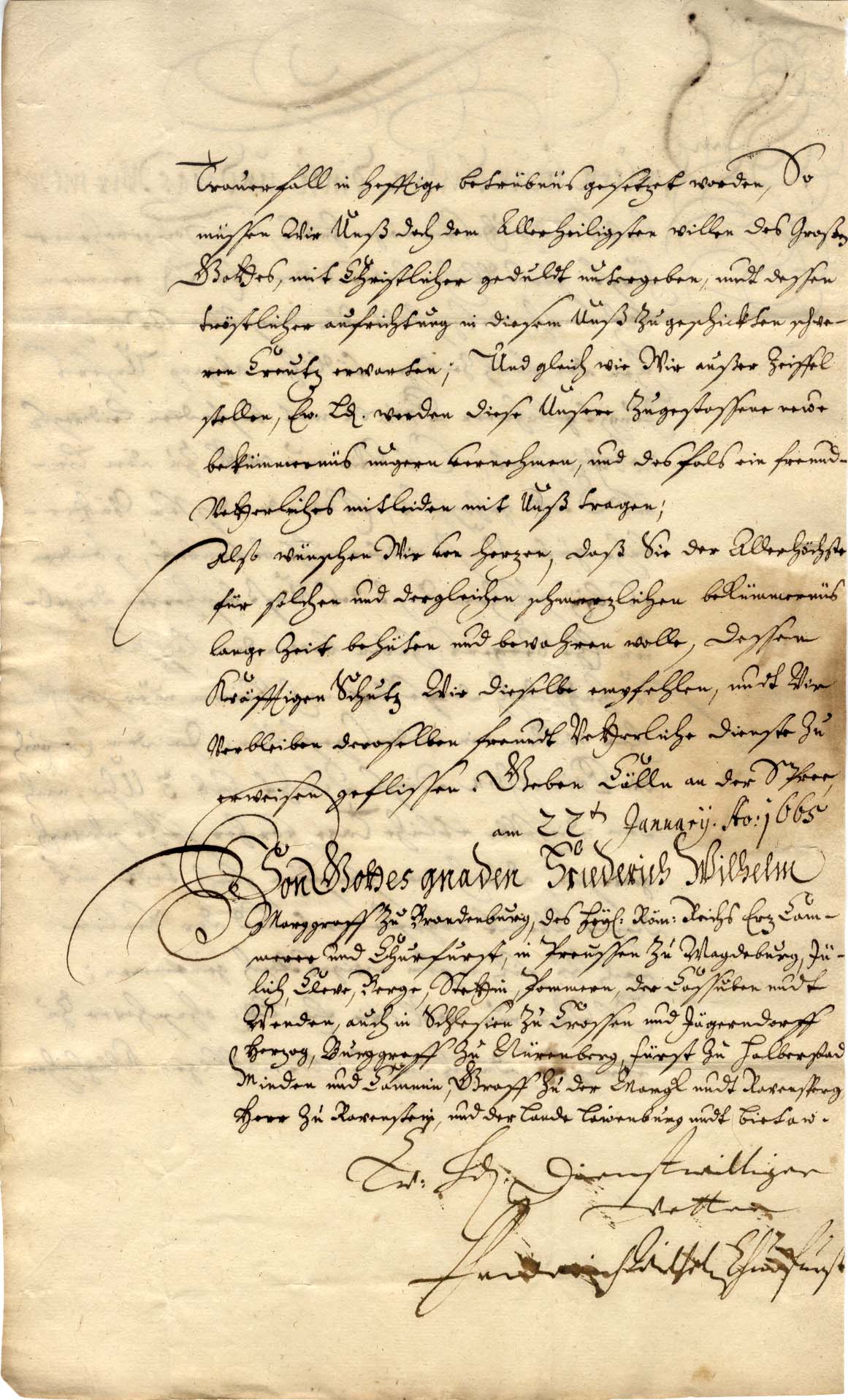Description
Letter signed, two pages (both sides), 7,75 x 12,5 inch, 22.01.1665, in German, to "Vetter" (`cousin`) - concerning deaths of newborns*, signed by Frederick William in black ink, with intersecting letter folds, foxing, and mild signs of wear to the edges - in fine condition.
* The Great Elector commemorates the death of a newborn Prince "a few weeks ago" [probably Heinrich (*November 19, 1664; † November 26, 1664)] and currently laments the Death of the "princess that night at 3 o'clock" [it must be Heinrich's twin sister
Amalia (*19.11.1664, † January 22, 1665)], which upsets him greatly, but he has this
to conform to "divine will".
Further Information on the person
Profession:
(1620-1688) Elector of Brandenburg and Duke of Prussia, thus ruler of Brandenburg-Prussia, from 1640 until his death in 1688. A member of the House of Hohenzollern, he is popularly known as "the Great Elector" (der Große Kurfürst) because of his military and political achievements.
Year of Birth: 1620
Certificate of authenticity
All of our pieces are sold with a Certificate of Authenticity. If a piece turns out to be wrong or if you do not like an autograph, you will get your money back for a lifetime.
Payment & Security
Your payment information is processed securely. We do not store credit card details nor have access to your credit card information.



